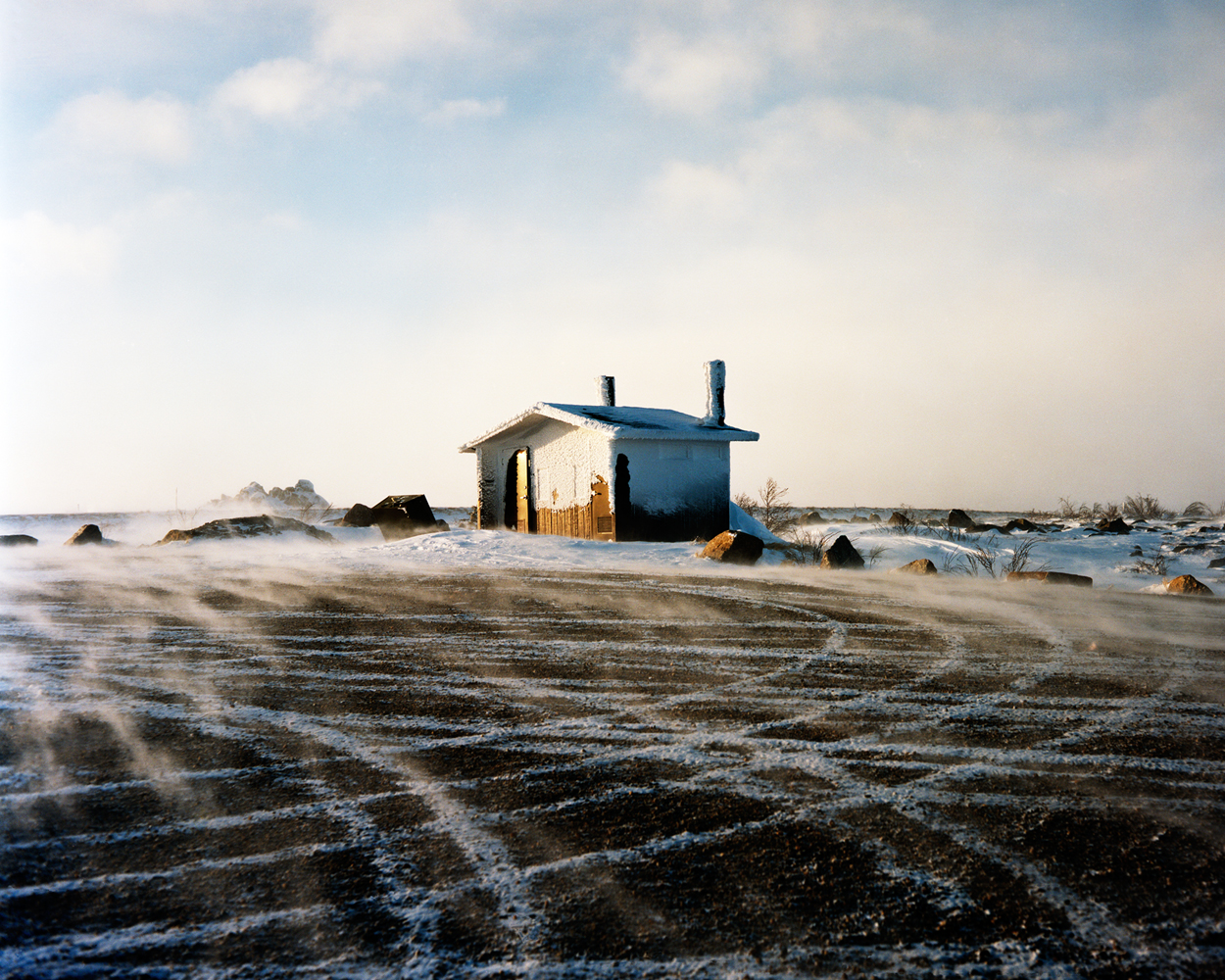
When you run out of West, head North. The hunger to see the edges of America drew photographer Ben Huff to the Dalton highway, a storied stretch of road along the Trans-Alaskan Pipeline. Over the course of five years, Huff fueled up his truck at home in Fairbanks and drove north to photograph the path to the most remote reaches of the U.S. – and confront the clash between breathtaking wilderness and industrial ambition. “Everything that I was struggling with or trying to find was encapsulated in this one 500 mile stretch of road,” Huff said.
The Dalton Highway was first known as simply The Haul Road, a groove worn into the tundra by fleets of tankers on their way up and back from the Prudhoe Bay Oil Field. It was eventually named the Dalton Highway after an oil engineer in the 1980s, and about a decade later, it was opened to public traffic.
Huff became enchanted with the road on a day trip to the Arctic Circle with his wife when they first moved to Fairbanks. Though an impressive gateway to the earth’s frozen north, the Circle is only one-quarter of the way up to the end of the road. The question remained, “What else is up there?”
The answer is both “not much” and “everything,” depending on how you look at it. When pushing past latitudes where sunrise and sunset defy the conventions of time, with no cell phone service or basic amenities for hundreds of miles, reference points for regular life skitter away. “Nothing can kind of prepare you for seeing sunsets on the North Slope,” Huff said. “The alpenglow and the space and the quiet. The quiet is just unnerving.”
Huff encountered not only the truckers (now simultaneously mythologized and de-mystified by shows like Ice Road Truckers) but a fascinating parade of drivers and dreamers who were on a similar quest. “Everyone’s tired, everyone’s seeing this heartbreakingly beautiful landscape. No one’s showered, everyone’s eating out of a cooler or freeze-dried stuff. We’re just dirty and on the same path,” he said. “There was a point where the portraits started to feel a little bit like self portraits, in a way.”
Huff’s photographs took shape not by a need to encapsulate the enormity of his surroundings, but by the curious experience of seeing it through a windshield. The frames are narrow, and the landscapes, however ecstatic, are almost always defined by a slice of road. “I struggled with the space for so long and finally I kind of resigned myself to the fact that I was trying to do the impossible,” he said. “I was never going to really ever going to communicate the space that is up there.”
After five years of driving through all seasons and all states of mind, Huff said he left the project with more questions than answers. “It would be easy to go on the road and make a sort of political stance against oil, against the pipeline, against a road through that environment,” he said. “But I was fortunate to spend five years running that road. I put countless gallons of gas in my car to do it. I saw things I’m incredibly grateful for.”
In a place where Wal-Marts and McDonald’s are now as ubiquitous as sourdoughs and homesteaders once were, the highway embodies the confounding nature of the 49th State. “Even though it’s a beautiful landscape, and it’s beautiful light, and it’s Alaska, and it’s the arctic,” Huff said. “You’re still standing in the middle of a road.”
Ben Huff is an Alaska-based photographer. His work will be exhibited in February at the Alaska State Museum in Juneau, his current home. The photographs are also collected in a new book, The Last Road North.
Valerie Lapinski is a video producer at TIME.
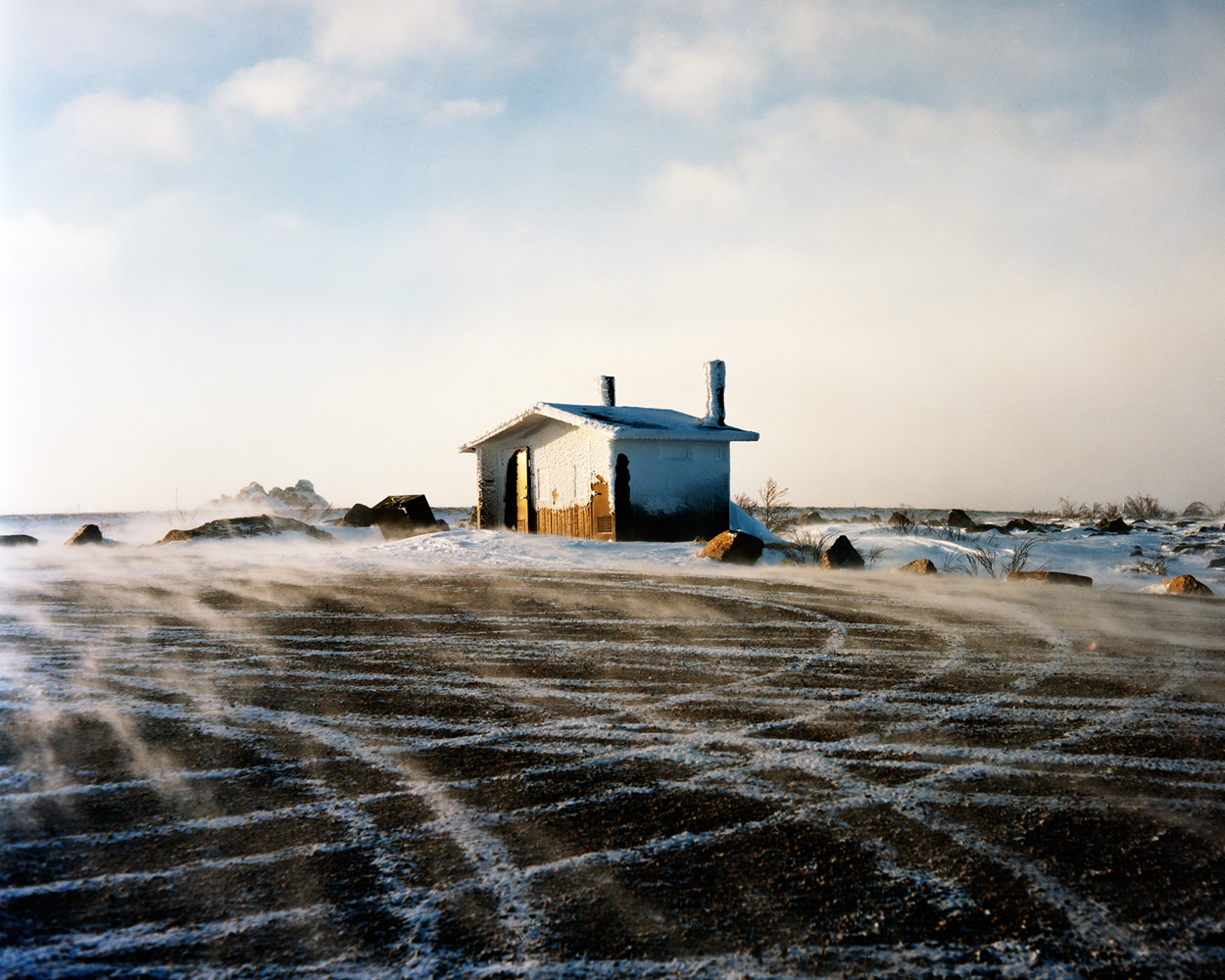
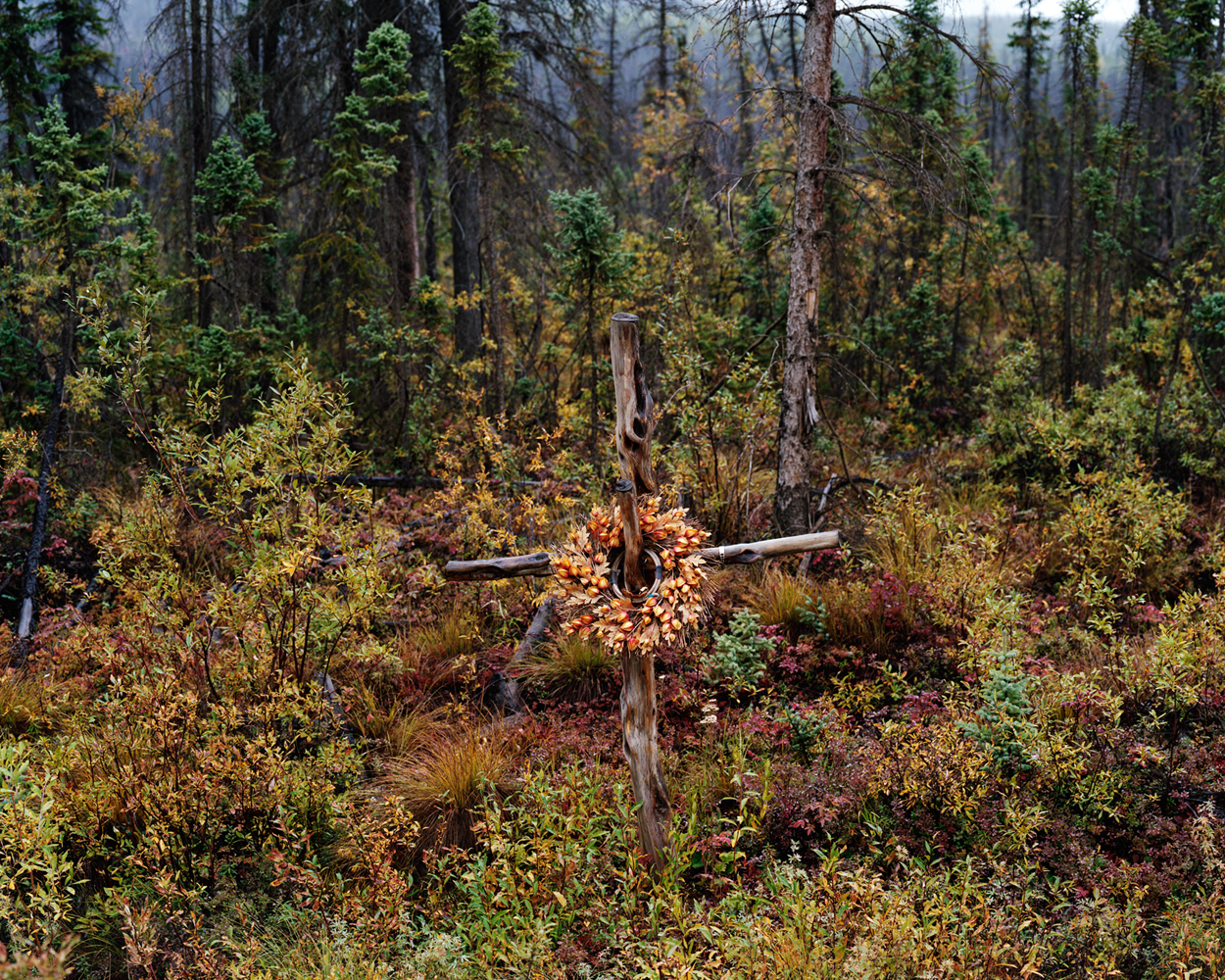
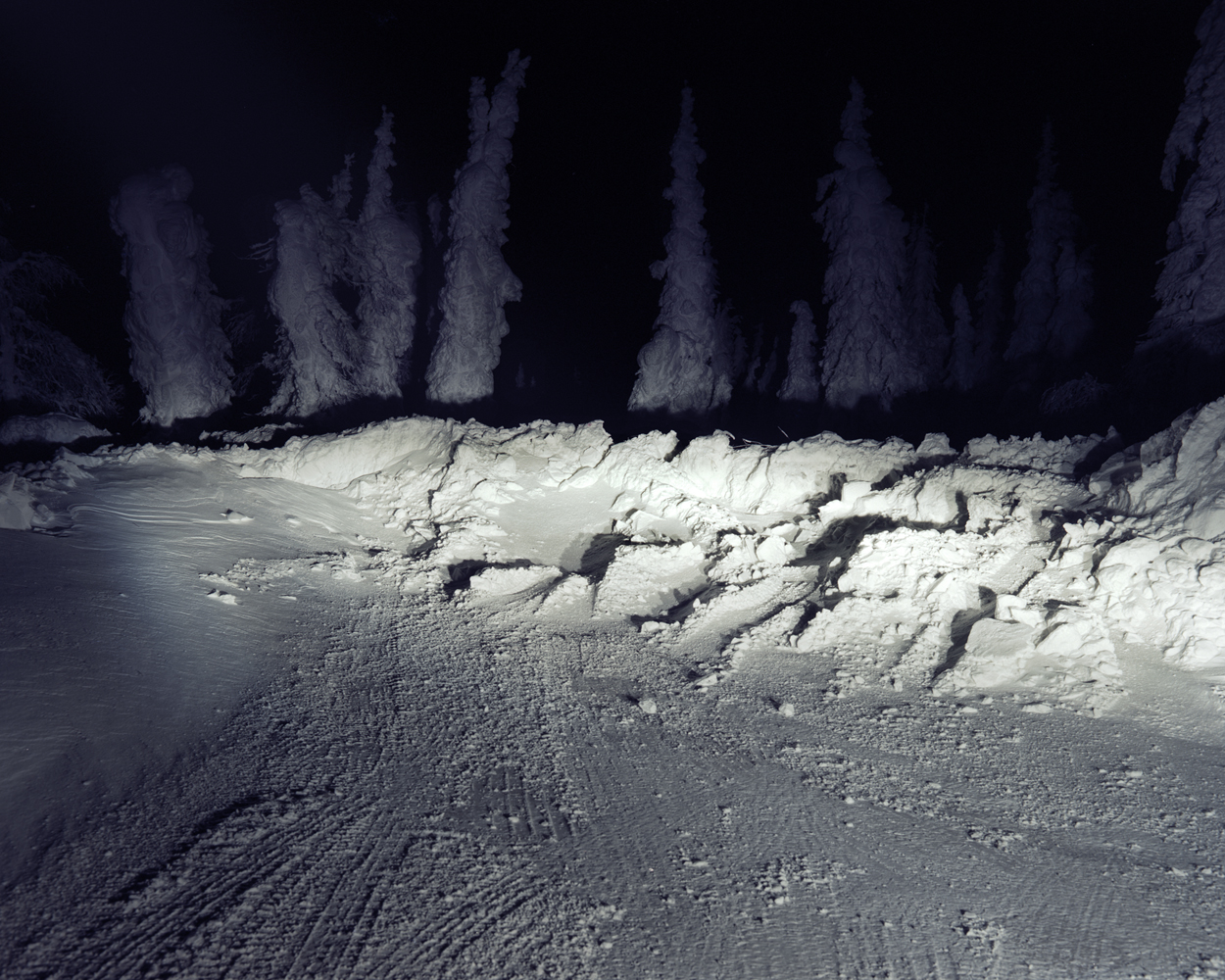
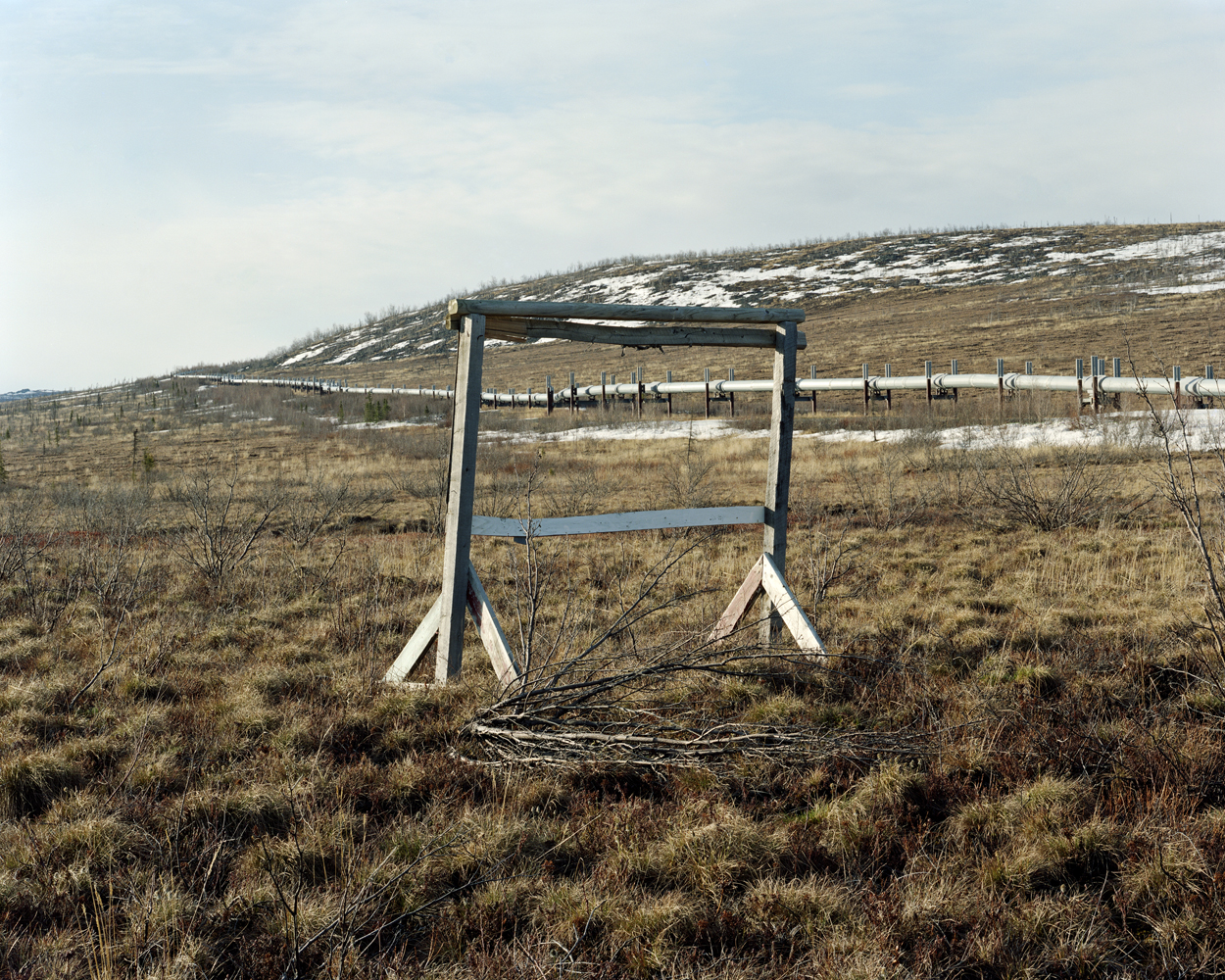
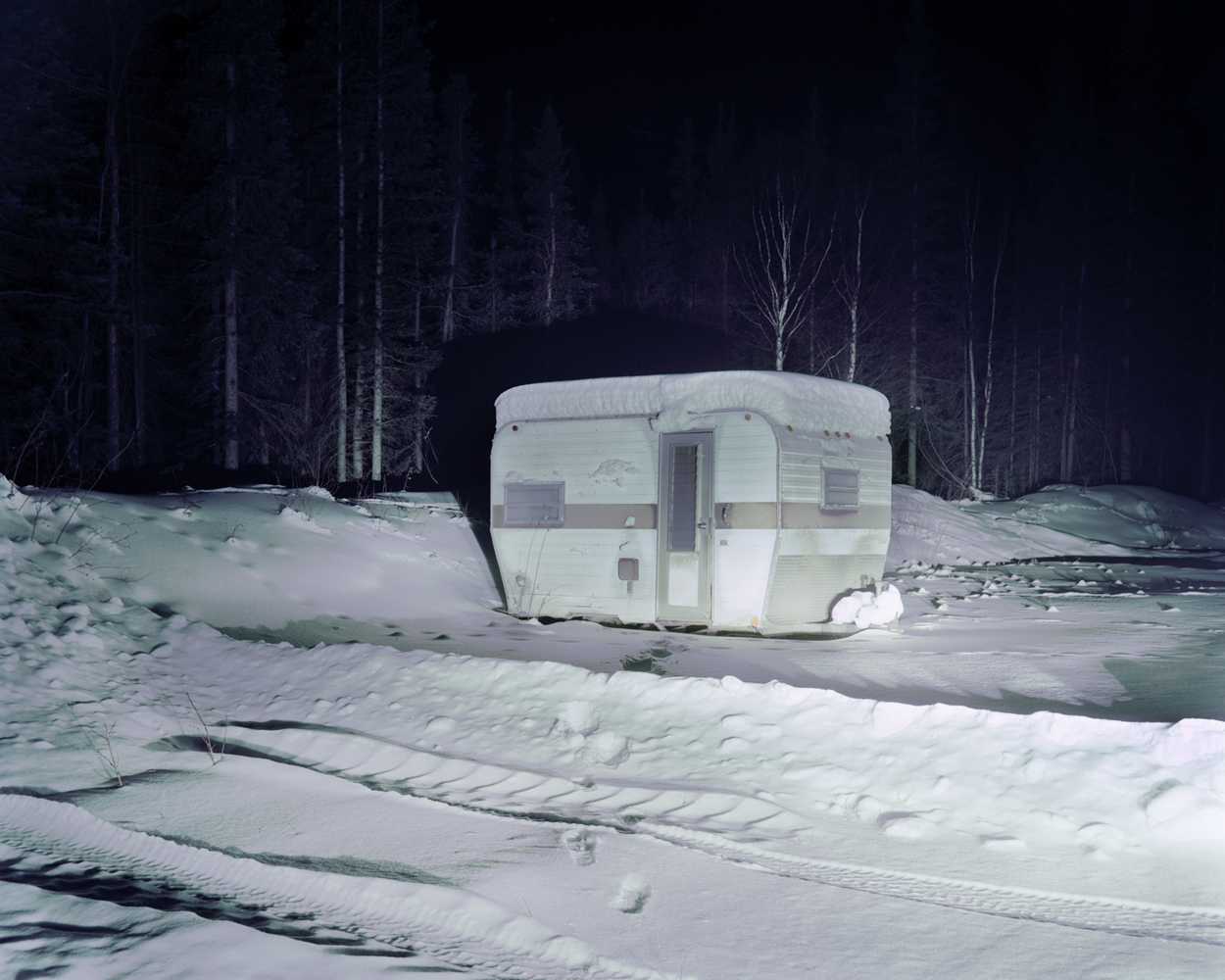
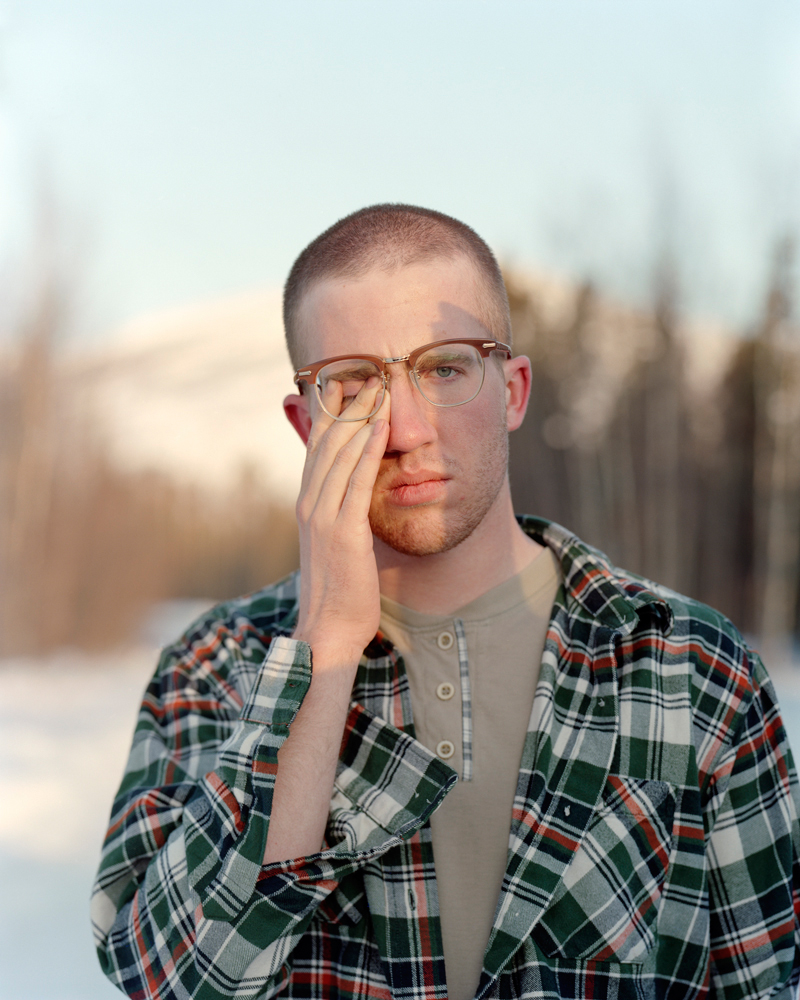
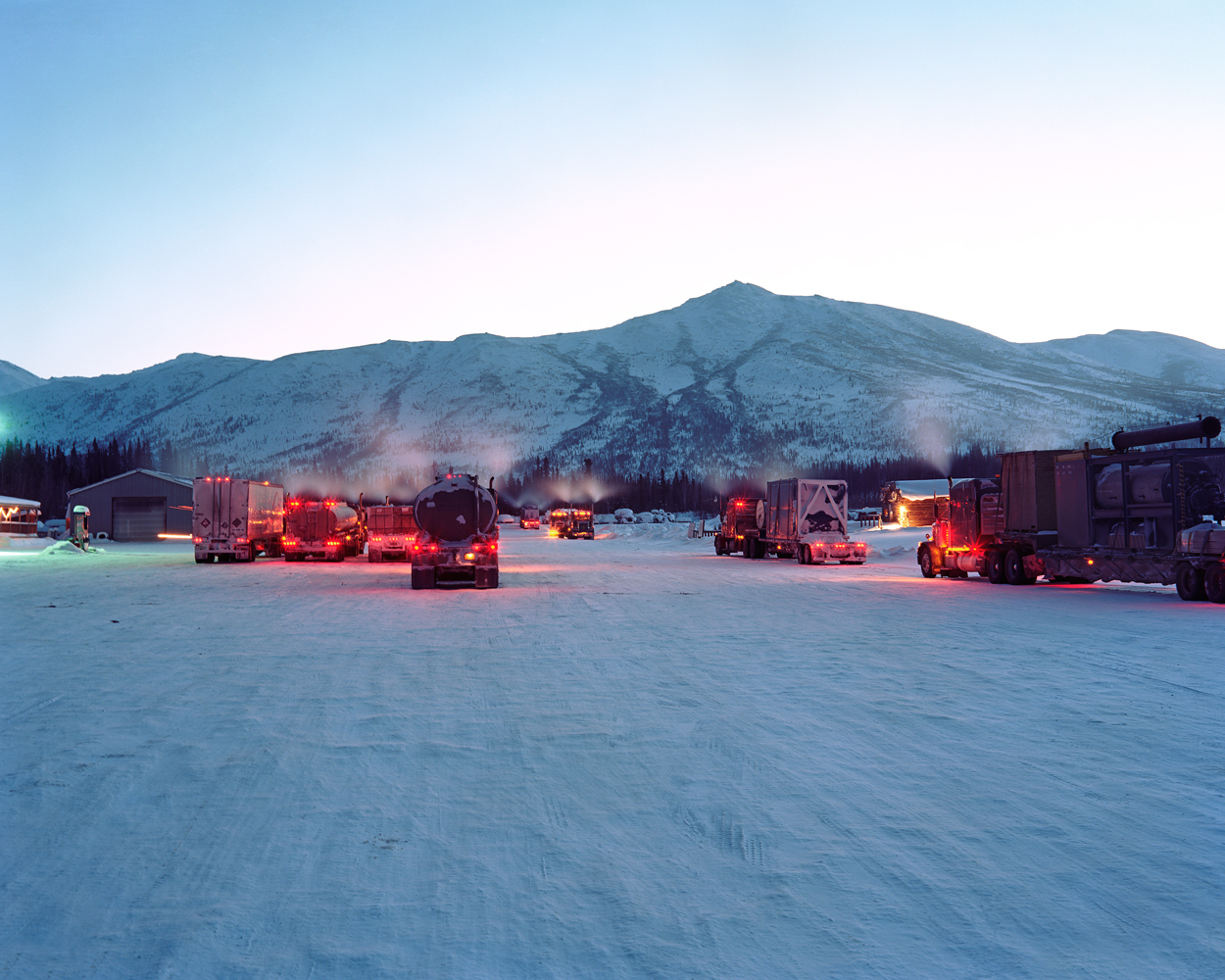
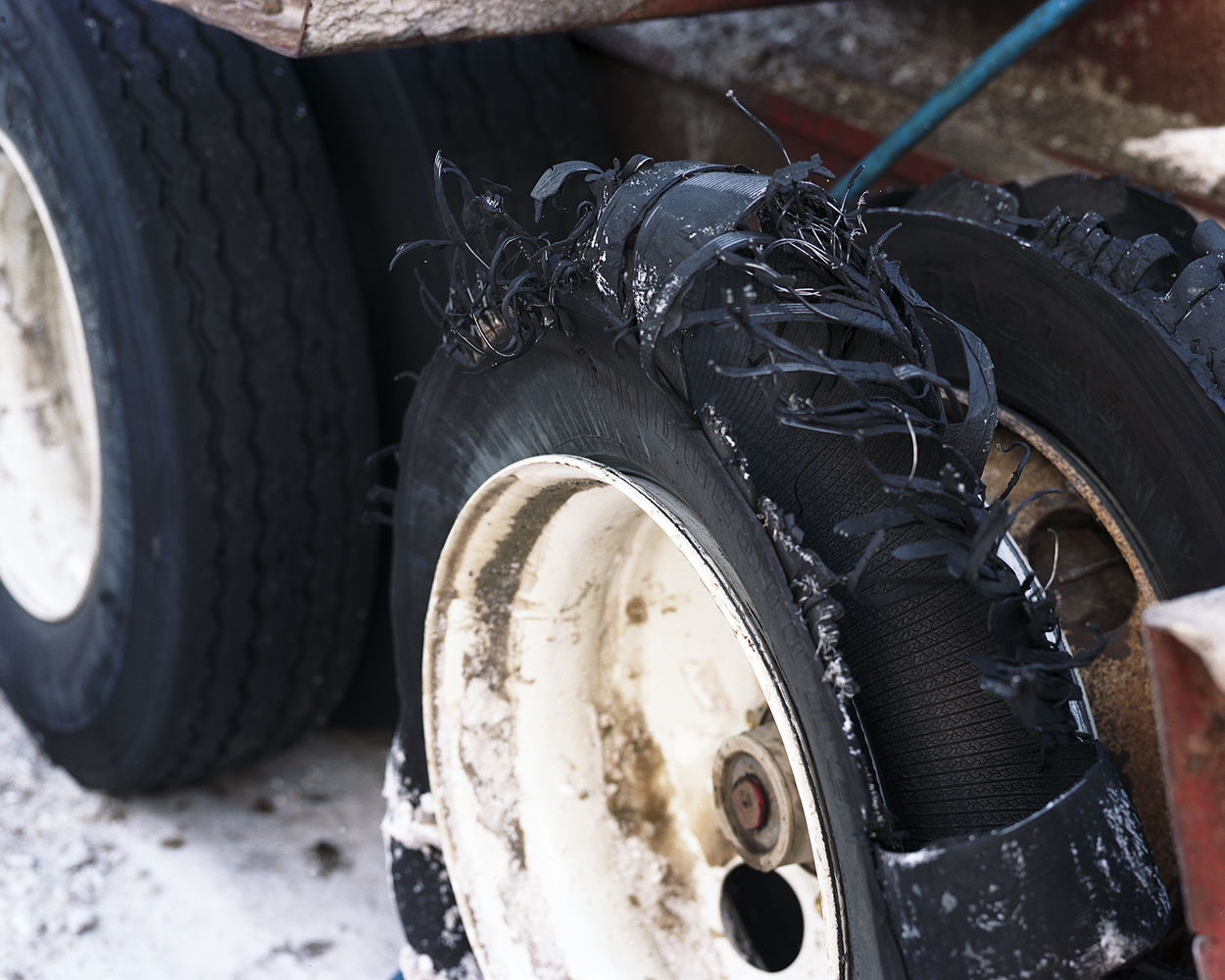
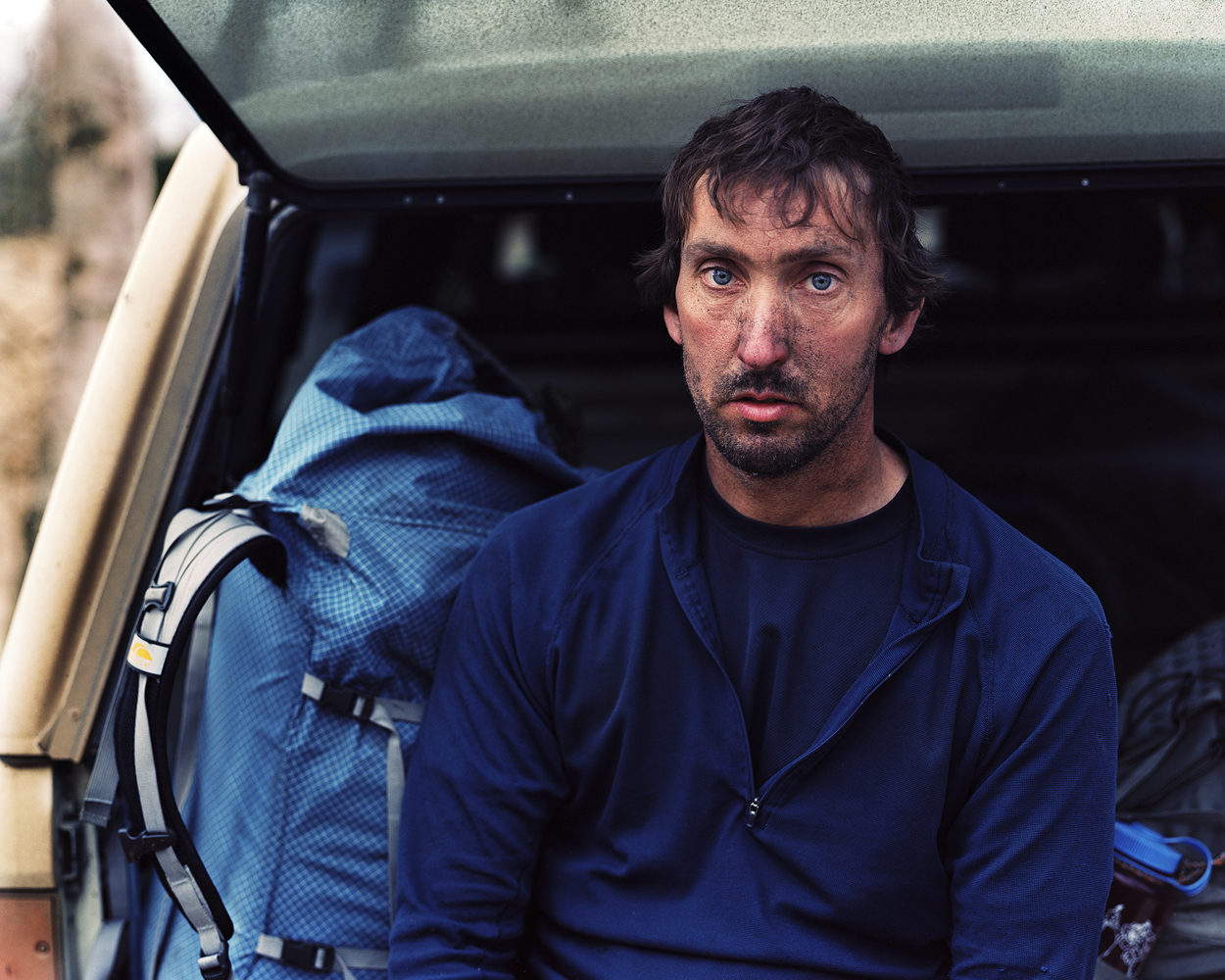
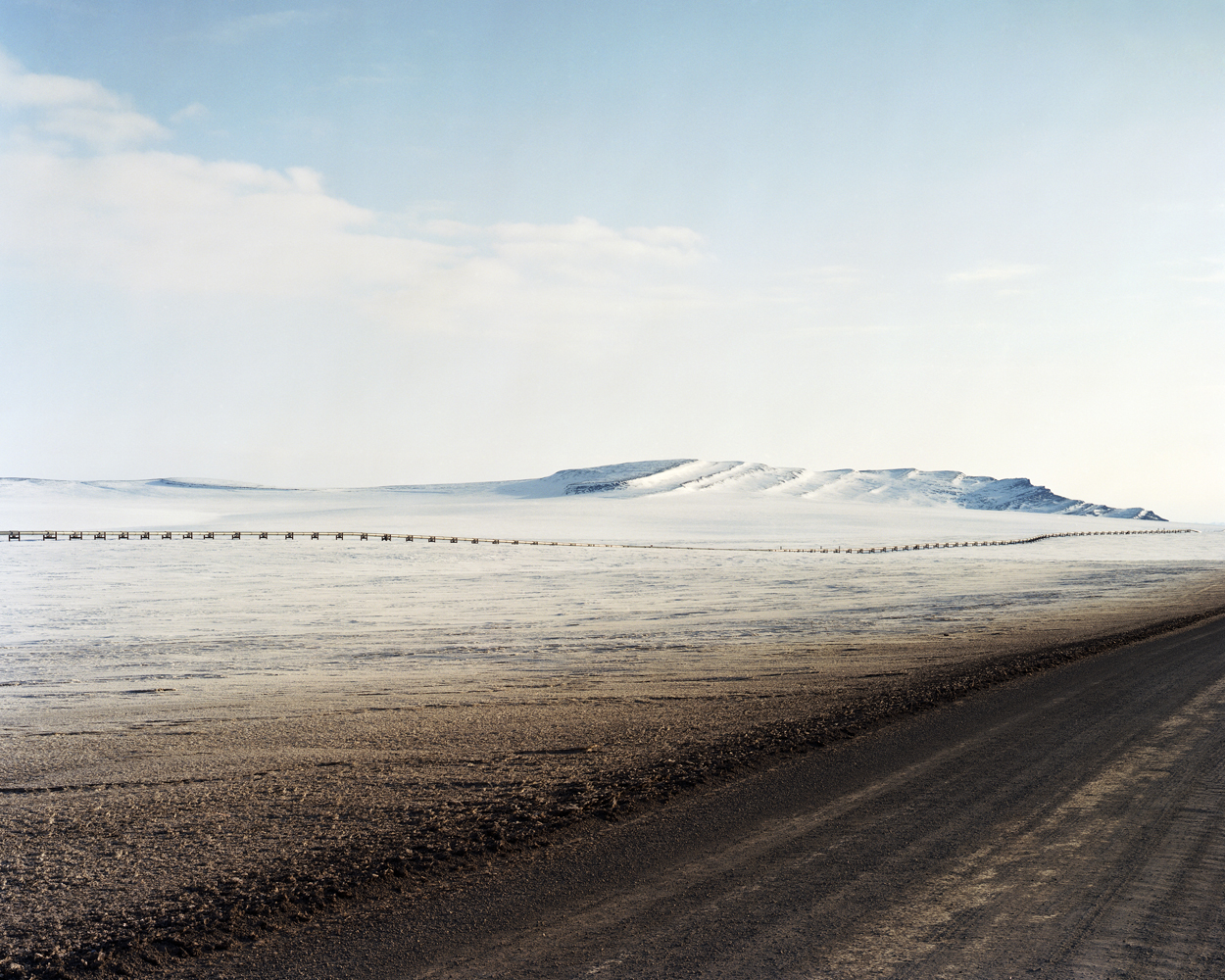
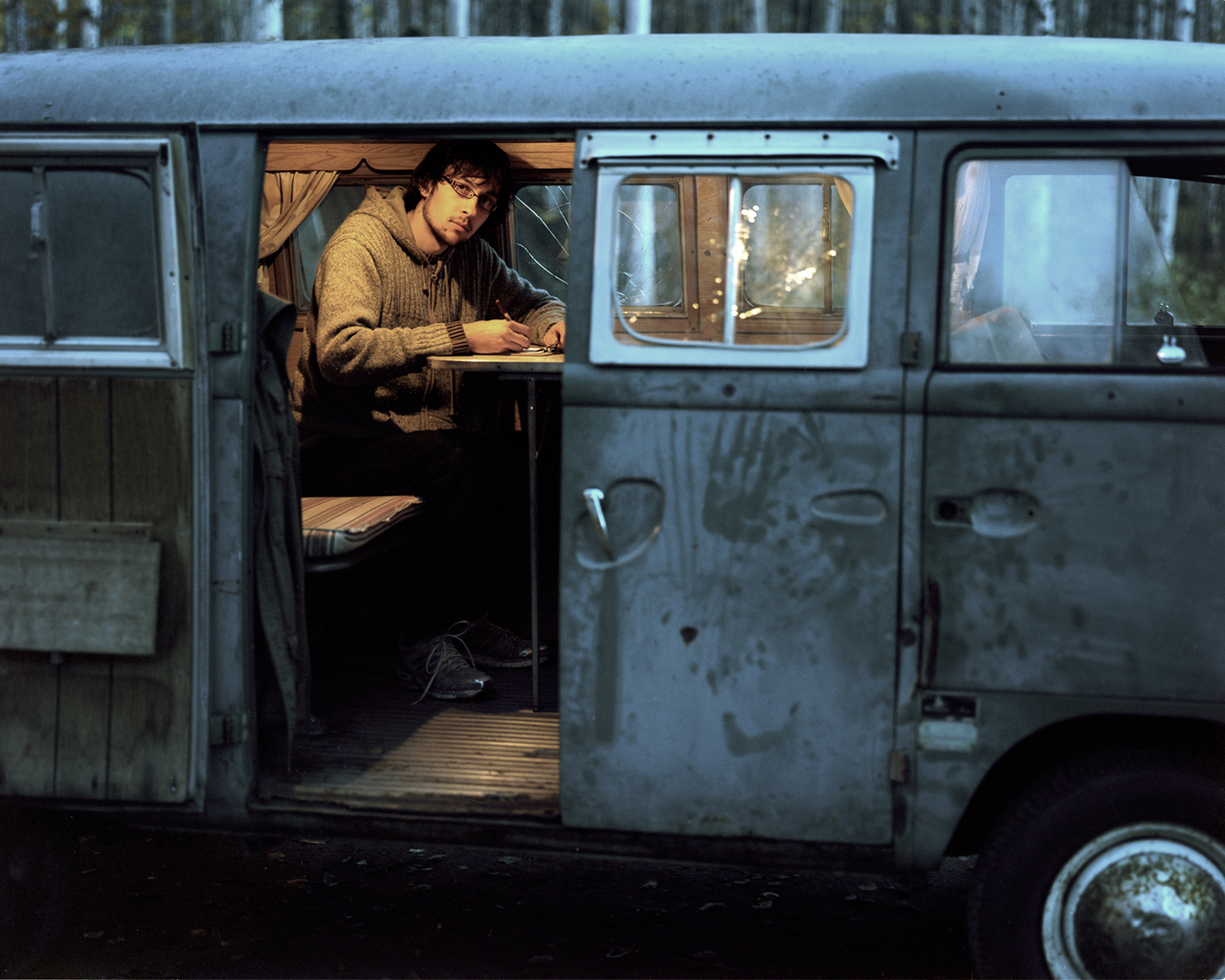
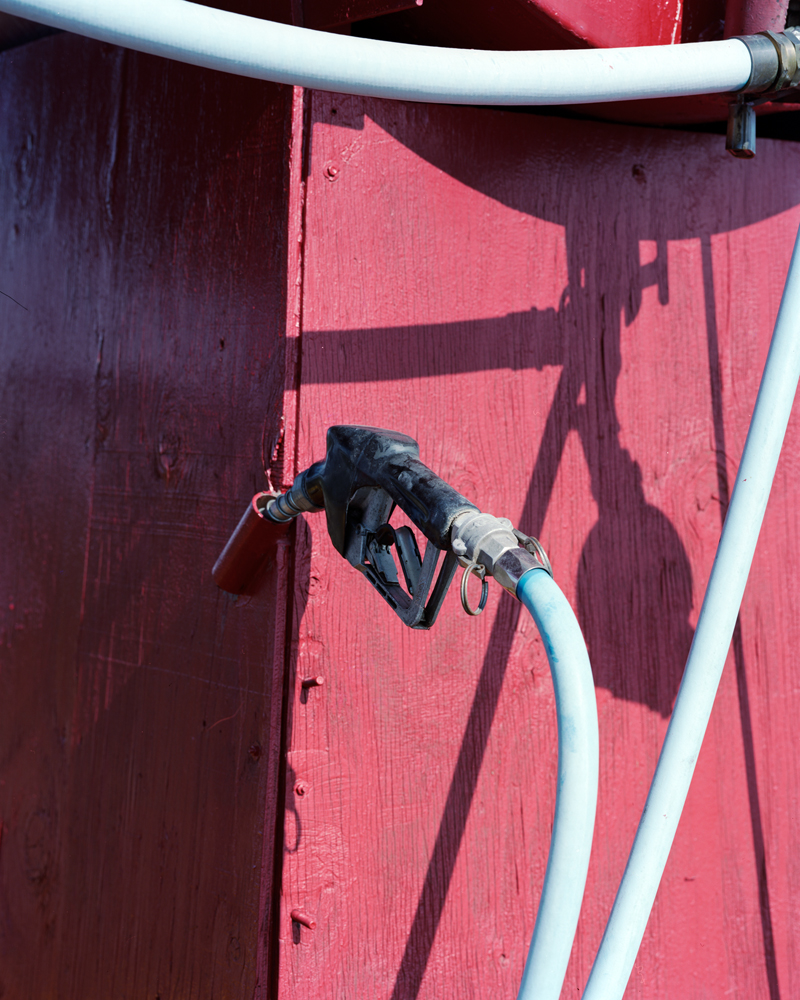
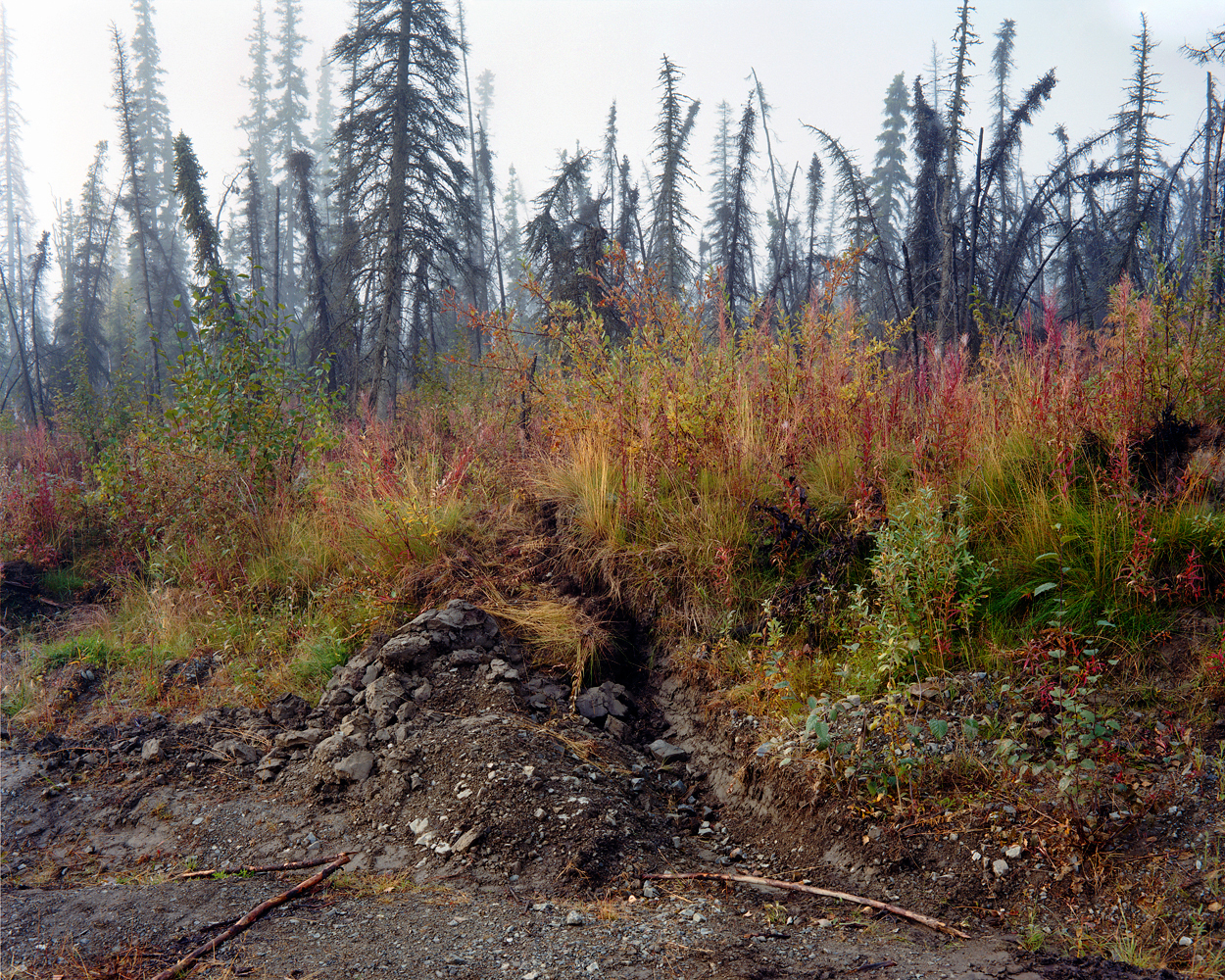
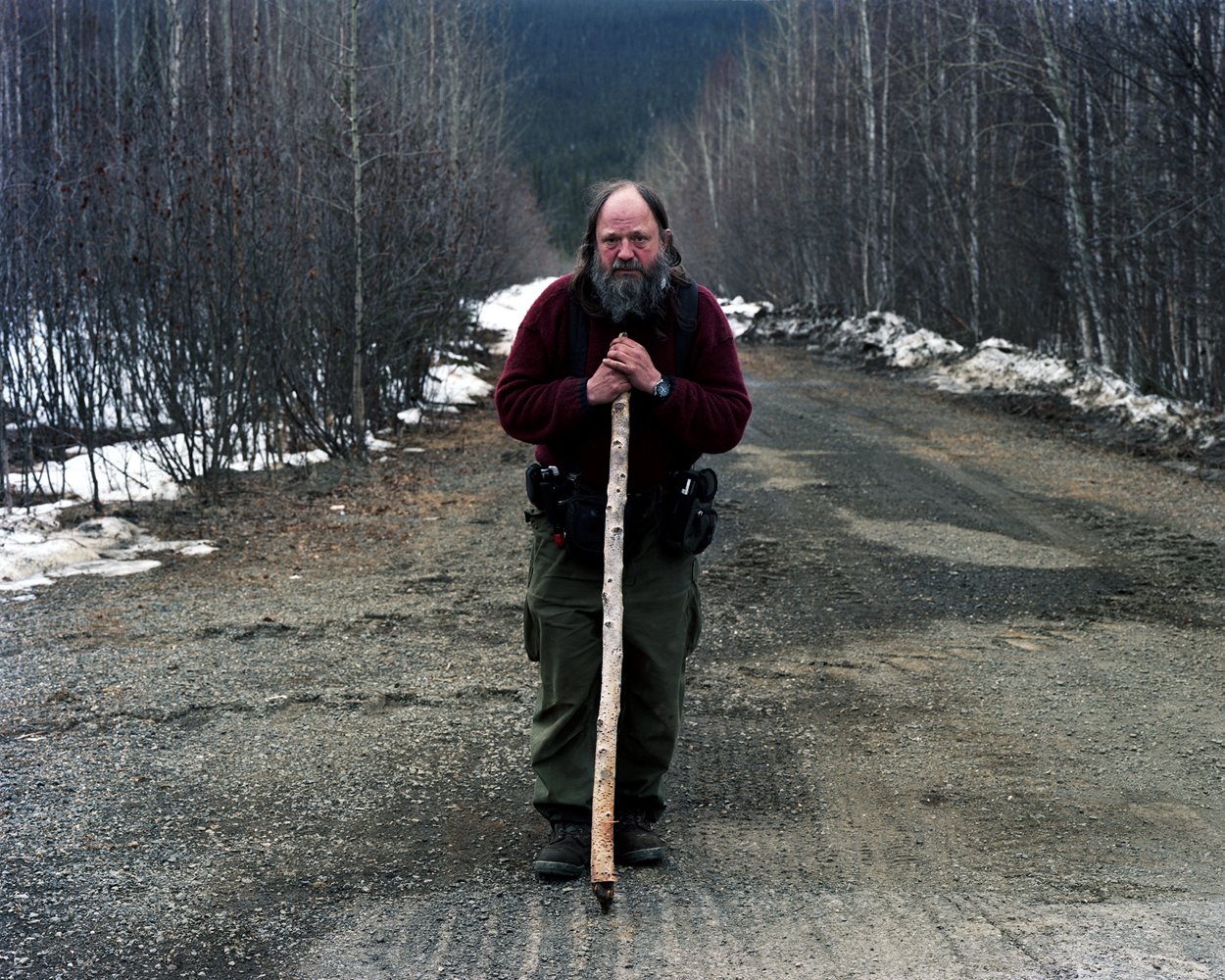
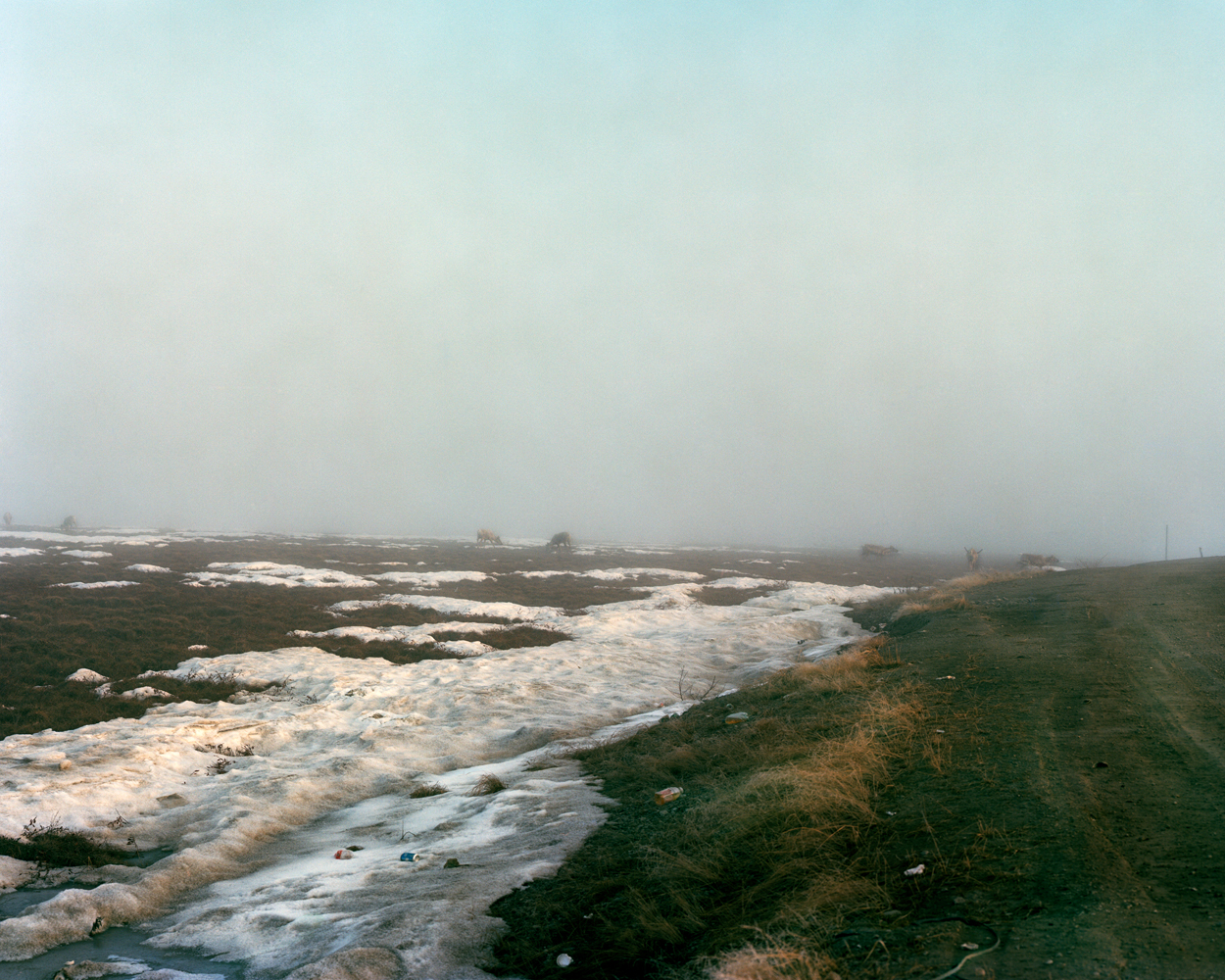
More Must-Reads from TIME
- Cybersecurity Experts Are Sounding the Alarm on DOGE
- Meet the 2025 Women of the Year
- The Harsh Truth About Disability Inclusion
- Why Do More Young Adults Have Cancer?
- Colman Domingo Leads With Radical Love
- How to Get Better at Doing Things Alone
- Michelle Zauner Stares Down the Darkness
Contact us at letters@time.com